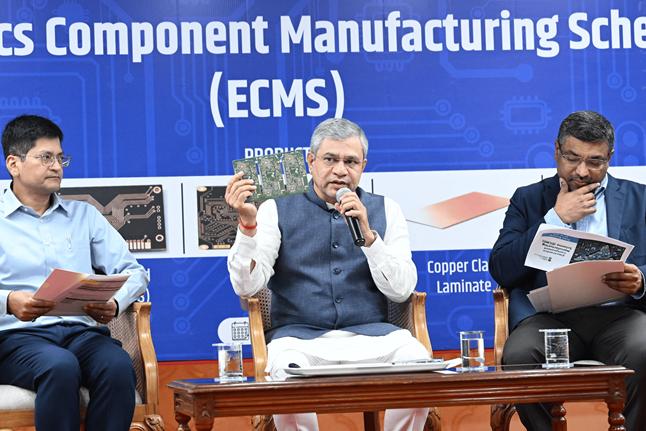In a major push to strengthen India’s electronics manufacturing ecosystem, the government has approved seven projects worth ₹5,532 crore under the Electronics Components Manufacturing Scheme (ECMS). Announcing the decision, Union Minister for Electronics and Information Technology Ashwini Vaishnaw said the move marks a significant step in India’s journey from assembling finished products to manufacturing core components, materials, and machinery domestically. The projects are expected to generate ₹36,559 crore worth of production and create over 5,100 direct jobs, with units distributed across Tamil Nadu, Andhra Pradesh, and Madhya Pradesh to promote balanced regional growth.
The approved projects focus on manufacturing key components such as Multi-Layer and High-Density Interconnect (HDI) Printed Circuit Boards (PCBs), Camera Modules, Copper Clad Laminates (CCL), and Polypropylene Films — all of which are critical to the electronics value chain. These initiatives are expected to meet 20% of India’s domestic demand for PCBs and 15% for camera module sub-assemblies, while fully fulfilling the country’s requirement for Copper Clad Laminates. The ECMS has attracted strong interest, with 249 applications representing ₹1.15 lakh crore in proposed investments and the potential to generate over 1.42 lakh jobs.
According to the Ministry, the projects will reduce import dependence, lower product costs, and foster high-skill employment in manufacturing and R&D. They will also strengthen trusted supply chains for sectors such as defence, telecommunications, electric vehicles, and renewable energy. Forming a crucial link between the Production Linked Incentive (PLI) scheme and the India Semiconductor Mission (ISM), the ECMS supports India’s broader vision of becoming a global electronics manufacturing hub. Vaishnaw said India is emerging as a “product nation,” capable of designing, manufacturing, and exporting complete electronic equipment, thereby driving innovation, scale, and self-reliance.

